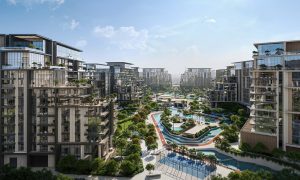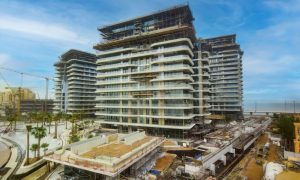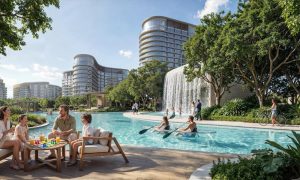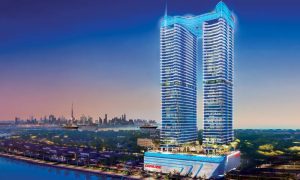Brexit impact on Dubai real estate only ‘temporary’: JLL
Impact of EU exit vote on emirate’s commercial and residential sectors to last until end of year, consultancy says
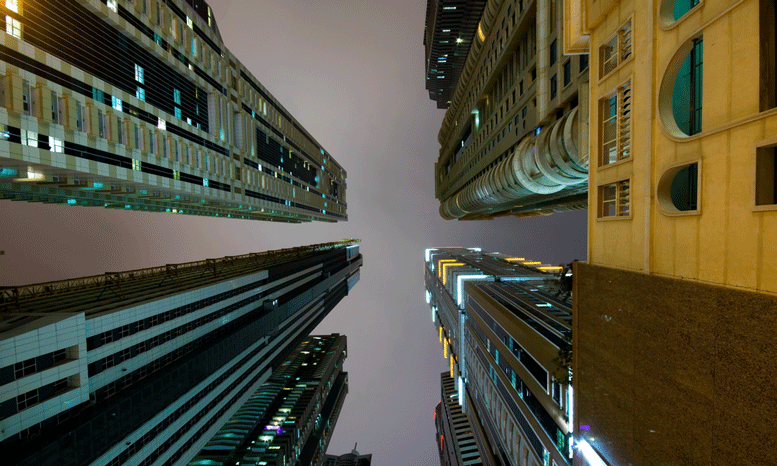
Dubai’s real estate market is expected to start recovering in early 2017 and the impact of the ‘Brexit’ will only be temporary, says a new report by JLL.
The real estate advisory firm’s 2016 Dubai Real Estate Q2 Overview report evaluated the impact of Britain’s vote to exit the European Union on Dubai’s property market, across the office, residential, retail and hotel sectors.
It said that as Brexit brings slight uncertainty to the market, rent values in 2016 continue to face downward pressures in both the commercial and residential sectors.
With British nationals being the third largest investor group in the emirate’s real estate market, according to data from the Dubai Land Department, the fall in the sterling’s value following the Brexit vote is adversely affecting further investment from the UK into the emirate.
“Even though it is too early to predict the long-term implications, overall there is a slight probability of British investors being negatively impacted by the devaluation of the British pound following Britain’s decision to exit the European Union,” said Craig Plumb, head of research, JLL MENA.
“However, we believe the effect of the decision will have temporary repercussions as a substantial number of British investors who work and reside in the UAE avoid sourcing their income in sterling. If we dissect the market further, particularly for residential, we notice that expatriates in Dubai are most likely to continue renting their homes instead of switching to ownership, resulting in sales being more negatively affected than the rental sector.
“If external factors stabilise over the rest of the year, we expect the Dubai residential market to easily recover in early 2017.”
Office vacancy rates throughout Dubai have shown a general downward trend in Q2 2016, the report found, but attributed this to a lack of quality office space, rather than a clear increase in demand.
“Meanwhile, the Brexit decision has seen an adverse effect on the retail and hotel sector. Due to the devaluation of the pound, Dubai and the MENA region as a whole has become an increasingly expensive destination for European visitors,” Plumb added.
According to the report, the second quarter of 2016 saw the handover of only one office tower in Dubai – Westbury Square in Business Bay – which added 30,000 sqm of office Gross Leasable Area (GLA), taking the total stock to 8.5 million sqm, broadly in line with the figure recorded during the first quarter of 2016.
The forecasts for supply in 2017 and 2018 have been revised downwards over the quarter owing to delays in several projects which were scheduled for completion in 2017. Another reason cited by the report is the change in the offering of the Al Duja Tower. Previously included as a mixed-use building, it has now been confirmed as largely residential, reducing potential 2017 office supply by 167,000 sqm. Meanwhile, the handover of the ICD Brookfield property has been confirmed only for Q1 2019.
The Dubai Design District (d3) is emerging as a more desirable destination, the report said, with rents increasing by approximately 40% on the back of top retail names, such as the Chalhoub Group, moving their headquarters to the destination and the expected growth of the design industry in the region at an annual rate of 6% over the next five years.
On the residential side, around 1,500 villas were handed over in MBR City’s District 11 in the second quarter of this year, marking the first project which has been delivered in this major development, the report said. A further 1,680 units were added across Dubai in both the apartment and villa categories, which took the emirate’s total stock to 462,000 units.
A major contributor to this stock was Danube Properties, which launched its 418-unit Glamz residential project in the quarter, the report found. Located in the Al Furjan area of Jebel Ali, the project’s construction is expected to start in the third quarter of the year and completed in September 2018. With this, Danube’s portfolio now comprises 1,700 units while two more of its projects are expected to be launched by year-end.
Another notable development in Dubai’s real estate sector is the introduction of a new building classification system by the DLD, the report added. The system aims to create a more transparent market by providing a complete database for every single unit in Dubai along with a star rating system.
On the retail side, Dubai added 30,000 sqm of GLA in the second quarter of 2016 across projects such as Ibn Battuta Mall Phase II and a community centre in International City, said the report. The remainder of 2016 is expected to witness the delivery of further 150,000 sqm, while the supply pipeline for 2017 has been increased with construction having resumed on two projects, the Dubai Art Centre in Barsha and Sustainable City Mall, which takes the potential supply next year to 159,000 sqm.
In the hospitality segment, Dubai’s supply of hotel rooms increased to 72,500 in the second quarter of 2016 with the addition of landmark projects such as the W hotel at Al Habtoor Plaza on the banks of the Dubai Canal, as well as the Rove Downtown Dubai and Wyndham Marina. JLL said several properties announced for 2016 can be expected to see their opening postponed to 2017 due to delays in construction and funding and the overly ambitious timelines initially set by some developers.
